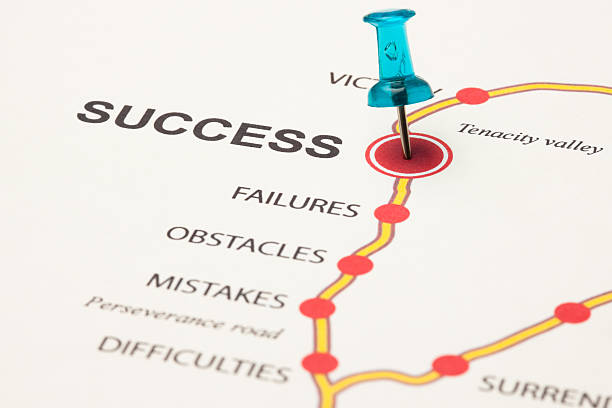Last Updated on March 15, 2023

There is one discipline of philosophy designed just for those of us who live in the actual world: Stoicism. It’s a way of thinking that aims to make us more resilient, happy, moral, and wise–and hence better individuals, parents, and professionals.
Stoicism appears to be growing in popularity, partially due to its practicality and partly due to the fact that more people appear to be seeking a better way of life. “A person who can tolerate pain or misfortune without revealing their feelings or complaining” is the contemporary definition of a stoic mindset. While Stoicism certainly helps people become more robust and calm in the face of adversity and misery, it is more than that.
It’s not just about how we can face our issues with mental clarity and composure for a Stoic; it’s about how we can live a decent life, and move closer to what the ancient Stoics called eudaimonia – which loosely translates as flourishing, happiness, or well-being.
Stoicism has run through the lives of many of history’s great leaders. Kings, presidents, artists, writers, and entrepreneurs have all used it. Marcus Aurelius was a Roman general. Stoic philosophy impacted Frederick the Great, Montaigne, George Washington, Thomas Jefferson, Adam Smith, John Stuart Mill, Theodore Roosevelt, and General James Mattis, to mention a few.
So what is Stoicism? Who were the Stoics? How can you be a Stoic? We answer all your questions and more below.
What is Stoicism?
Stoicism is a philosophy that originated in Ancient Greece and continues to be practised today. It is a way of life whose ultimate purpose is moral greatness.
Stoicism is frequently depicted as severe and merciless. Stoicism’s adherents, on the other hand, argue that it is a liberating and joyful way of life. Stoicism, which was founded by Zeno of Citium (344–262 BCE), has a large following today. Ancient Greek stoics considered themselves to be the heirs of Socratic moral philosophy and Heraclitus of Ephesus’ natural philosophy. Stoicism has left an indelible mark on the history of philosophy. It had an impact on Christian morals and theology, as well as modern philosophy.
Stoicism is a tool for self-mastery, endurance, and wisdom, not some obscure subject of academic investigation. It is something one employs to live a successful life. Many of history’s great minds not only recognised Stoicism for what it is but actively sought it out.
Is Stoicism Good or Bad?
Stoicism is beneficial to us if we follow its values with the proper balance. To reap the benefits of Stoicism, you must strike a balance. This means that adhering to stoicism too strictly can lead to problems such as difficulty connecting with others on an emotional level, which can lead to feelings of loneliness. Furthermore, not completely comprehending what stoicism entails might be detrimental to our well-being.
This is not a fear tactic; rather, it is a truth that I am expressing. Stoicism has a lot of problems right now.
The Good Part of Stoicism
Focus on things you can control, ignore the rest
Psychologists sometimes differentiate between something called an “internal locus of control” and an “external locus of control.” People with an internal locus of control tend to believe that they are responsible for most of what happens in their lives. They focus on what they could do better or what they can influence in pursuing their goals.
People with an external locus of control are the opposite: they blame others for their problems, find excuses to not pursue their goals, and generally bitch and moan about the world until you’re ready to put your head in an oven.
Reams of evidence show that people with an internal locus of control tend to be happier, less anxious, make better decisions, and accomplish more of their goals.
Accept the pain and don’t chase pleasure
The Stoics correctly observed that most of the silly nonsense individuals do is because they believe it will make them feel better. People have a propensity to exaggerate the short-term benefits of something that feels good while underestimating the long-term drawbacks. Pursuing prestige, wealth, and thrill can all backfire disastrously.
The Stoics also correctly observed that the majority of life’s wonderful things are painful and necessitate some level of sacrifice. As a result, they defined virtue as the ability to resist short-term pleasures in exchange for a long-term gain.
This is just extremely practical life advice that has become widely accepted around the world. The Stoics were among the first to describe it properly.
Memento Mori
Finally, the Stoics practised Memento Mori, which translates to “Remember that you shall die.” While that may sound morbid and like something out of the lyrics of a doomsday oriented gothic rock band’s music, thinking about one’s own death has a practical application.
When one considers one’s own death, one is forced to contemplate what is genuinely important in one’s life. You can only appropriately prioritise all you are doing while alive by considering not being alive.
The Bad Part of Stoicism
Today’s World May Seem Incompatible With Stoicism
There are numerous reasons why following Stoic theory now would be foolish. For starters, there are no longer any philosophical schools like there were in ancient Greece. This philosophy also provides answers to challenges and eras that are no longer ours. Philosophy, on the other hand, was a way of life founded on a practise that was inextricably linked to a theory. However, philosophy as it is now understood and practised is nearly entirely theoretical.
When we question academic philosophers, their arguments aren’t much stronger. There can no longer be any Stoicism or Stoics, and no one can claim to teach a system of which we only have a damaged memory due to the loss of nearly all of the original writings and teachers. They also emphasise the impossibility of maintaining the doctrine’s epistemological and theological theses, without which the entire system collapses.
Some believe that there are other types of soul medicine available today, such as psychoanalysis, psychotropic medications, cognitive therapy, and psychotherapies. All of these factors are more likely to lead to the development of a “art of serenity.”
You Can Look Less Compassionate, Cold, And Uninteresting
Other justifications are more flimsy, such as the notion that the sage Stoic is a cold and austere creature devoid of sensations and immeasurable misery, or the unacceptably arrogant pride of those men who claim to be masters of everything via the power of their will alone.
Stoicism is a harsh school of thought. It basically teaches you not to give up in the face of difficulties or adversity. As a result, it may be regarded as cold, distant, and remote. It’s a ruthless form of self-control and a means to a goal at a period marked by considerable violence, suffering, and turbulence as a result of the massive political changes that occurred at the time.
You May Seem Boring to Other People
People who see from the side may believe that Stoics live a boring existence since Stoicism liberates them. They don’t realise, however, that accepting change, resisting injustice, and building self-confidence are never dull. Life has nothing uninteresting to offer and all that Stoicism has to offer while maintaining control over your emotions and logic so that you can appreciate it even more.
Consumption without end, drama, overcompensate and moral apathy are tedious but stoicism isn’t one of them.
Relationships With Other People Can be More Difficult
It may appear that the Stoics are incapable of establishing any connection, amicable or romantic, due to their self-control, serenity, and tranquillity. One of the reasons for this is that practically every Stoic will be misunderstood by those around him.
But one thing is certain: Stoicism will assist you in accepting the people in your life and understanding that you have no control over their beliefs. This may entail breaking up with some people, but it’s a necessary step on the road to Stoicism. Don’t expect too much from people, and don’t expect everything you do to be returned to you in kind.
Conclusion
As you can see, no matter how excellent something is, too much of it is terrible. That is why, if we wish to get the benefits of Stoicism, a good dose of it is ideal. In reality, switching from time to time is ideal for us. In moments of stress or when you feel helpless, practice Stoicism. This aids in the development of resilience and strength. However, there are times when you must try new things and emotionally connect with others.
As a result, there are periods in our lives when we must adhere to Stoicism in order to have a fulfilling life, and times when we must dial it back in order to have fulfilling relationships.
BEFORE YOU GO…
Hey, thank you for reading this blog to the end. I hope it was helpful. Let me tell you a little bit about Nicholas Idoko Technologies. We help businesses and companies build an online presence by developing web, mobile, desktop and blockchain applications.
We work with your budget in developing your ideas and projects beautifully and elegantly as well as participate in the growth of your business. We do a lot of freelance work in various sectors such as blockchain, booking, e-commerce, education, online games, voting and payments. We provide the needed resources to help clients develop their software packages for their targeted audience on schedule.
Be sure to contact us if you need our services! We are readily available.











